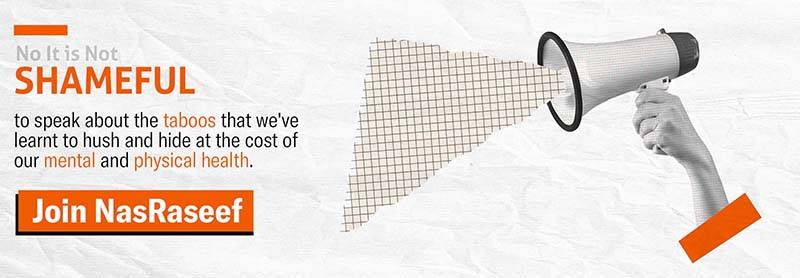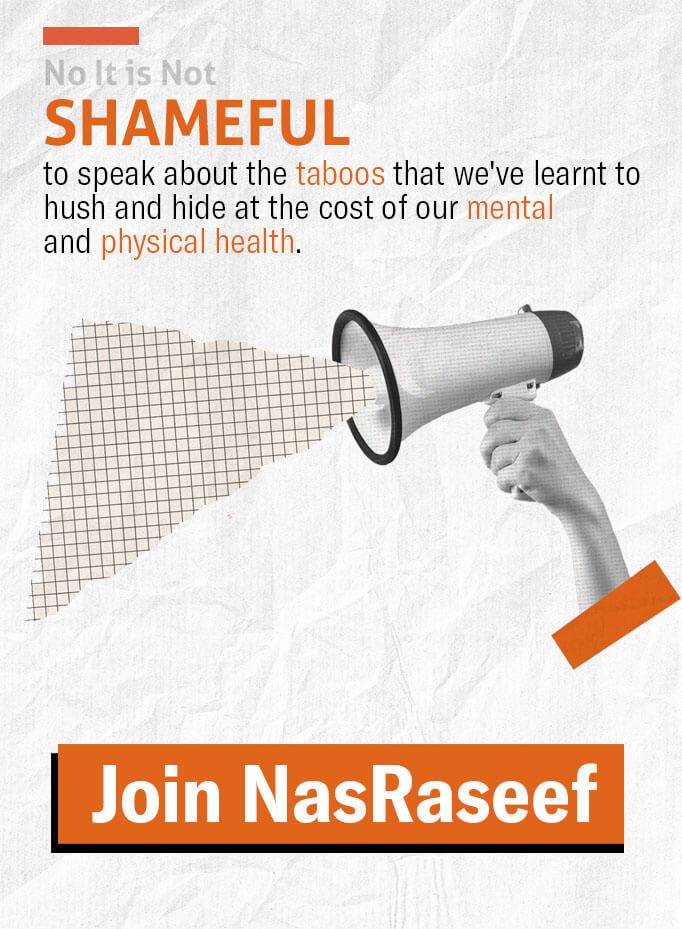In a large store frequented by Egypt’s middle and upper-middle class, the decline in customers was noticeable. A woman, clutching her son in-hand, attempts to discretely pose a question to the salesman, ‘Are products that have been removed from their packaging eligible for a discount?’ Another man begs to be snuck more than his ration of subsidized sugar, saying that his livelihood depended on it, as he owned a small shop for oriental desserts. Meanwhile, customers go back and forth to the nuts section, grabbing handfuls of nuts and eating them on the spot, with no regard for the security cameras or store workers. The stories of Egyptians struggling against the sharp rises in prices are many, each tinged with its own brand of the tragic, and sometimes comic. [h3]Eat and Don’t Pay[/h3] Mahmoud Salem, who works in one of the branches of French hypermarket chain Carrefour in Cairo, says: “After the rise in prices, 50% of the store visitors come here to walk around, while others come to eat the foods that they can’t afford, clandestinely disposing of the wrappers or leaving them in shopping carts for us to find at the end of the day. The remaining minority come to buy the absolute essentials. However, there is another segment that spends lavishly on luxuries, with no regard for the expenses. This segment doesn’t need to wait for special promotions. Moreover, promotions no longer attract the same numbers of customers as they used to, and we can’t discount the prices any further.” [h3]‘No Winter Clothes This Year’[/h3] Fatma El-Sayed Ahmed (52), a cleaner at a public authority, says: “I’m going to stop taking insulin and I’ll have to suffice with the pills, since that’s all I can afford. I’m not going to buy any winter clothes this year, and my family will eat meat once a month if we can afford it.” Ahmed explains that her salary is EGP 971 ($57) per month, and she had three children at various stages of their education. Her husband works as a day laborer, and she is diabetic, which requires a lifelong treatment regimen that costs her half her salary, in addition to her contribution to the daily food expenses, among others. The only solution, as she sees it, is to search for alternative sources of income alongside her work, in order to be able to afford the costs of education, particularly as her children cannot attend their examinations without paying the fees stipulated by the school regulations. [h3]‘A Midwife? Why Not?’[/h3] Meanwhile, Mokhat El-Sayed, a salesman at a clothing shop in Downtown Cairo, expresses his fears over his wife and their daughter, who is due for delivery very soon. The prices of medications have skyrocketed, and many are not even available amid a nationwide shortage of imported medicines. Moreover, the costs of giving birth at a hospital have exceeded the reach of many average citizens. “When I get sick, I refuse to go to see a doctor, and I take any painkiller so that I can keep going to work. The minimum cost of a check-up is EGP 200 ($11), and that’s not considering the cost of the medicine. This way, I can save as much as I can.” If things continue in this manner for much longer, says El-Sayed, without any buyers at the Downtown store, he will take his wife and return to their village in Upper Egypt, to birth their daughter with the help of a midwife, just as his mother gave birth to him. Against the rising costs of specialized hospitals, El-Sayed has no other choice but to venture into this option. [h3]‘If We Buy Your Medication, We’ll Starve for the Rest of the Month’[/h3] Doaa Samir, a pharmacist, affirms: “The severity of the issue was clear to me from its first moments, as medicines were among the commodities that were most affected by the rising prices, particularly the vital ones. Many of them aren’t even available in pharmacies, such as birth control pills and diabetes treatment, as well as appetite stimulants and some heart medicines. Moreover, when a patient asks for a type of medication, it goes without saying that I only give them one strip from the pack.” “One of the most tragic cases that I crossed paths with was when a woman came in with her husband to buy the medication that had been prescribed to her. As soon as her husband learned the cost of a strip of each box, he said, after some consideration: ‘Two of the four types of medication will suffice.’ When his wife gave him a reproachful look, he whispered to her: ‘If we buy all your medications, the children are going to starve until the end of the month’,” Samir continues. “All of this doesn’t take into account the prices of cosmetics or sexual performance pills, the prices of which have increased by over 60%. Many women have resorted to using cosmetics from unknown brands, many of which cause dermatological conditions on the long term. Moreover, a lot of men have turned to popular recipes for sexual stimulants to boost their performance,” she continues. [h3]‘I Fear That One Day I’ll Be Forced to Accept Bribes’[/h3] Mamdouh Salem, an administrative clerk at a governmental institution, confesses that he is caught in a major dilemma following the rising prices. “Before the hikes, prices were already considered too high for employees in our segment of public employees. I had long given up the possibility of traveling in the summer, or new clothes for me and my wife, sufficing with the basic necessities for our children,” he says. “We had come to rely on carbohydrates and legumes for sustenance, before the prices of even those went up. For example, lentils have jumped from EGP 14 ($0.75) to EGP 26 ($1.5), and ful [fava beans] has doubled in price, from EGP 12 to GP 24. I’ve begun to notice my children’s health deteriorating. After the insane surge in prices, I don’t know what else I can dispense with.” “One of my colleagues, who accepts donations and bribes, says I have to change my perspective on life, and begin accepting bribes to facilitate customers’ transactions, but so far my conscience has prevented me from indulging his point of view. But with the increasing pressures I’m facing, and the intensifying disputes with my wife, as well as our children’s requirements, I will either have to forgo my conscience, or my health in order to work for 18 hours a day to make ends meet,” he concludes. [h3]Adieu to the Egyptian Middle Class[/h3] Researcher Khalifa Al-Mahrazi, a consultant at Al-Howar Research Center, says that the rising prices of basic commodities will lead to various social and personal crises. These crises are likely to affect the majority of family units, threatening to disrupt their emotional and psychological well-being. He moreover notes that malnutrition and poor housing conditions harm people physically and psychologically, in addition to affect their ability to socially integrate. Moreover, in a study he conducted on the effect of inflation on the family, Al-Mahrazi explains that rising costs have caused a number of economic policies, such as increasing the inflation rate and monthly income insufficiency among those with limited incomes. Moreover, it had pushed many to resort to seeking more than one job to meet basic needs. Moreover, rising costs and inflation rates have adversely affected people on the social scale, leading to the spread of phenomena such as illegal earning, as well as increased psychological illnesses and rising divorce rates. Further, the average age of marriage has gone up, along with the rate of school dropouts. He moreover pointed to the importance of a sense of financial stability in the family, and the sufficiency of income and the capacity to meet social commitments and commitments toward children. His study further affirmed that the rising prices widen the gap between the middle class and the upper class, particularly as the middle class gets pushed into the lower segments.


Raseef22 is a not for profit entity. Our focus is on quality journalism. Every contribution to the NasRaseef membership goes directly towards journalism production. We stand independent, not accepting corporate sponsorships, sponsored content or political funding.
Support our mission to keep Raseef22 available to all readers by clicking here!




Join the Conversation
جيسيكا ملو فالنتاين -
7 hours agoجميل جدا أن تقدر كل المشاعر لأنها جميعا مهمة. شكرا على هذا المقال المشبع بالعواطف. احببت جدا خط...
Tayma Shrit -
1 day agoمدينتي التي فارقتها منذ أكثر من 10 سنين، مختلفة وغريبة جداً عمّا كانت سابقاً، للأسف.
Anonymous user -
2 days agoفوزي رياض الشاذلي: هل هناك موقع إلكتروني أو صحيفة أو مجلة في الدول العربية لا تتطرق فيها يوميا...
Anonymous user -
2 days agoاهم نتيجة للرد الايراني الذي أعلنه قبل ساعات قبل حدوثه ، والذي كان لاينوي فيه احداث أضرار...
Samah Al Jundi-Pfaff -
3 days agoأرسل لك بعضا من الألفة من مدينة ألمانية صغيرة... تابعي الكتابة ونشر الألفة
Samah Al Jundi-Pfaff -
3 days agoاللاذقية وأسرارها وقصصها .... هل من مزيد؟ بالانتظار